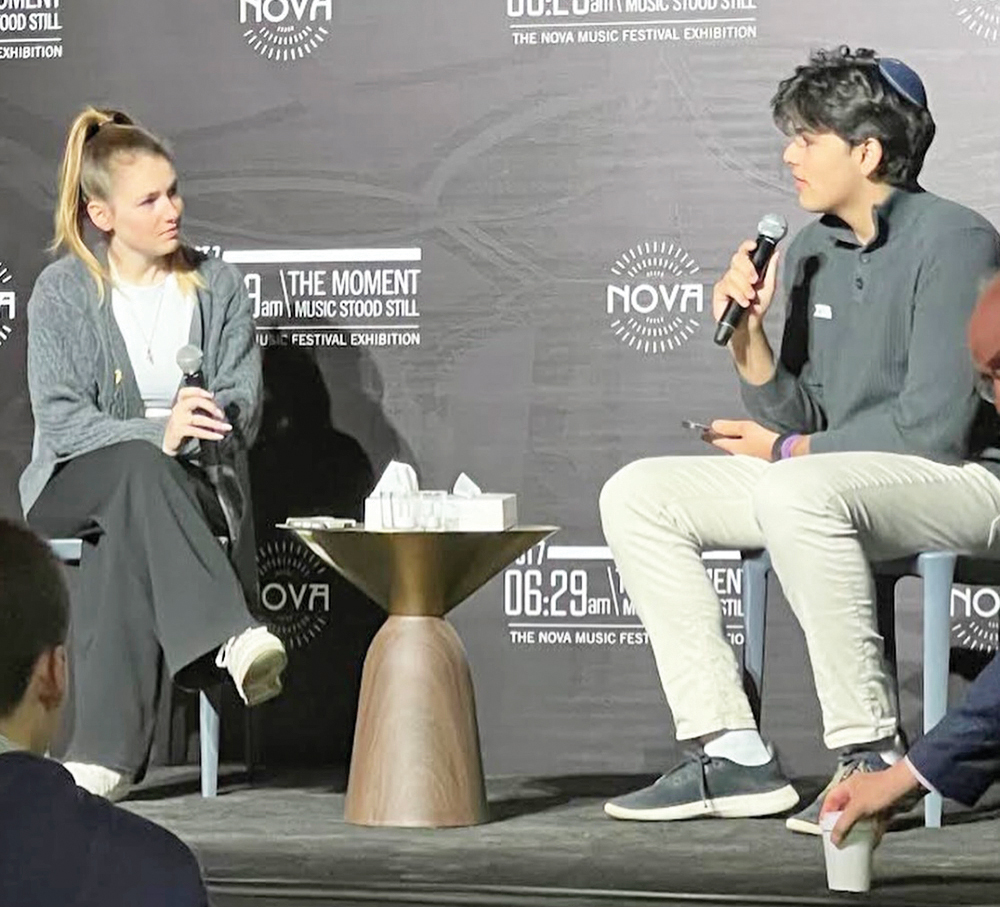Rabbi Yaakov Moshe Shurkin—a long-time maggid shiur at Yeshivas Rabbeinu Chaim Berlin—learned in the yeshiva of Radin for 15 years and had a close relationship with the holy Chafetz Chaim. One year, he spent the month of Elul in the yeshivah of Novardok, soaking in their powerful mussar approach and focusing on inner work and intensive middos development. When it came time for him to leave, he went to speak with the rosh yeshiva, Rav Avraham Yoffen. While waiting, he had a brief conversation with the rebbetzin, the daughter of the Alter of Novardok, Rav Yosef Yozel Horowitz. She asked him, “Tell me, please, what would you say is the difference between Radin and Novardok?”
The bachur Yaakov Moshe was silent and didn’t know how to answer. The rebbetzin then said, “I’ll tell you. In Radin, when you are in the presence of the saintly Chafetz Chaim, you are seeing the greatness of the holy Kohen Gadol in his avodah, and you learn ‘vus a mensch ken zein—what a person can become, un vus a mensch darf zein—and what a person ought to reach.’ However, here in Novardok, you learn ‘vus a mensch iz—what a person actually is, where you are holding and what you are right now.’”
~
דַּבֵּר אֶל־כָּל־עֲדַת בְּנֵי־יִשְׂרָאֵל וְאָמַרְתָּ אֲלֵהֶם קְדשִׁים תִּהְיוּ כִּי קָדוֹשׁ אֲנִי ה׳ אֱלֹקיכֶם:“Speak to the entire congregation of Israel, and say to them, You shall be holy, for I, Hashem your God, am holy, (Vayikra 19:2).”
The midrash expounds:
וְהָדֵין: קְדשִׁים תִּהְיוּ, יָכוֹל כָּמוֹנִי תַּלְמוּד לוֹמַר: כִּי קָדוֹשׁ אֲנִי, קְדֻשָּׁתִי לְמַעְלָה מִקְדֻשַּׁתְכֶם“‘Be holy’ might be taken to imply that you will be like Me, therefore it says, ‘… for I, Hashem, am Holy,’ —My Holiness is higher than your holiness, (Vayikra Rabbah, 24:9).”
In other words, implied in, “Kedoshim tihiyu—You shall be holy,” is the Ribbono Shel Olam’s qualifier: “You might think that My intention in this commandment is for you to be as holy as I am. That is, however, not the case, as the pasuk continues, “… ki kadosh Ani, Hashem—for I, God, am holy; My holiness is always going to be superior, beyond anything you can attain.” But we could ask: is it really necessary to point out that we are not actually expected to be equal to God? Does the midrash really need to point out that a human being—a creation of flesh and blood—cannot reach the Infinite heights of our Creator?
Rosh Yeshivas Mir and author of Sichas Mussar, Rav Chaim Shmuelevitz, zt”l, had an extraordinary insight into the way Chazal views how powerful we are when we activate our spiritual potential. Each of us has the ability to transcend “what we are right now,” and achieve lofty levels of self-mastery in avodah and middos development. Indeed, we can become so holy that if it were not for the textual confirmation that the Ribbono shel Olam does not literally expect us to reach His infinite heights, we would be left with a hava amina (original assumption) to believe that, indeed, we can!
Two hundred years earlier, Reb Dov Ber—the great maggid of Mezritch—also revealed a radical teaching: “Be kadosh (ki, ‘thus’) I, Hashem, am kadosh:” By living a life of kedushah, and sanctifying God’s name by generating Divine honor, praise and blessing, we are actually able to “add” to the holiness of Hashem. In this way, קדושתי למעלה—“My holiness above,” in the upper worlds—is מקדושתכם—“dependent on your holiness,” dependent upon the way we conduct ourselves here, below, in this world.
~
קְדשִׁים תִּהְיוּ literally means, “You will be holy.” It seems that rather than using the future tense, the Torah’s text would have used the form of a command: קדשים היו—“Be holy.” Yet, the Rambam sees deliberate meaning in using the future tense:
וּכְבָר הִבְטִיחָה תּוֹרָה שֶׁסּוֹף יִשְׂרָאֵל לַעֲשׂוֹת תְּשׁוּבָה בְּסוֹף גָּלוּתָן וּמִיָּד הֵן נִגְאָלִין שֶׁנֶּאֱמַר: (דברים, ל”א) וְהָיָה כִי יָבֹאוּ עָלֶיךָ כָּל הַדְּבָרִים וְגוֹ׳, (דברים ל”ב) וְשַׁבְתָּ עַד ה׳ אֱלֹקיךָ, (דברים ל”ג) וְשָׁב ה׳ אֱלֹקיךָ:“And the Torah has already assured us that, ultimately, Yisrael ‘will’ do teshuvah towards the end of her exile and be immediately redeemed: “There shall come a time when you ‘will’ experience all these things… and you ‘will’ return to Hashem… And Hashem ‘will’ bring you back from captivity.”
This Shabbos, may we remember “vus a mensch darf zein—who we are,” and also consider “vus a mensch ken zein—what we can become,” indeed, what we “will” one day become: redeemed, free kedoshim!
Rav Judah Mischel is executive director of Camp HASC, the Hebrew Academy for Special Children. He is the mashpiah of OU-NCSY, founder of Tzama Nafshi and the author of “Baderech: Along the Path of Teshuva.” Rav Judah lives in Ramat Beit Shemesh with his wife Ora and their family.













